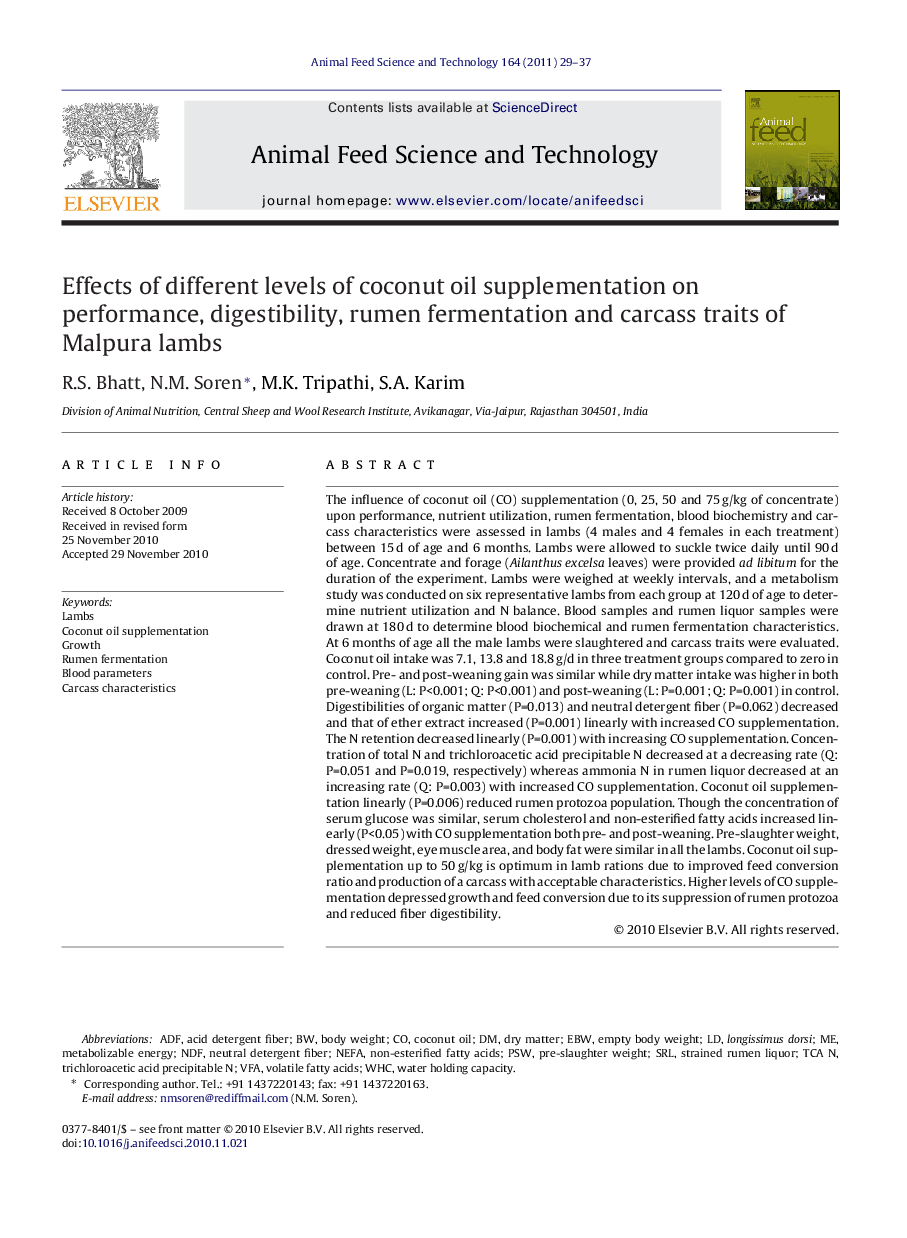| Article ID | Journal | Published Year | Pages | File Type |
|---|---|---|---|---|
| 2419995 | Animal Feed Science and Technology | 2011 | 9 Pages |
The influence of coconut oil (CO) supplementation (0, 25, 50 and 75 g/kg of concentrate) upon performance, nutrient utilization, rumen fermentation, blood biochemistry and carcass characteristics were assessed in lambs (4 males and 4 females in each treatment) between 15 d of age and 6 months. Lambs were allowed to suckle twice daily until 90 d of age. Concentrate and forage (Ailanthus excelsa leaves) were provided ad libitum for the duration of the experiment. Lambs were weighed at weekly intervals, and a metabolism study was conducted on six representative lambs from each group at 120 d of age to determine nutrient utilization and N balance. Blood samples and rumen liquor samples were drawn at 180 d to determine blood biochemical and rumen fermentation characteristics. At 6 months of age all the male lambs were slaughtered and carcass traits were evaluated. Coconut oil intake was 7.1, 13.8 and 18.8 g/d in three treatment groups compared to zero in control. Pre- and post-weaning gain was similar while dry matter intake was higher in both pre-weaning (L: P<0.001; Q: P<0.001) and post-weaning (L: P=0.001; Q: P=0.001) in control. Digestibilities of organic matter (P=0.013) and neutral detergent fiber (P=0.062) decreased and that of ether extract increased (P=0.001) linearly with increased CO supplementation. The N retention decreased linearly (P=0.001) with increasing CO supplementation. Concentration of total N and trichloroacetic acid precipitable N decreased at a decreasing rate (Q: P=0.051 and P=0.019, respectively) whereas ammonia N in rumen liquor decreased at an increasing rate (Q: P=0.003) with increased CO supplementation. Coconut oil supplementation linearly (P=0.006) reduced rumen protozoa population. Though the concentration of serum glucose was similar, serum cholesterol and non-esterified fatty acids increased linearly (P<0.05) with CO supplementation both pre- and post-weaning. Pre-slaughter weight, dressed weight, eye muscle area, and body fat were similar in all the lambs. Coconut oil supplementation up to 50 g/kg is optimum in lamb rations due to improved feed conversion ratio and production of a carcass with acceptable characteristics. Higher levels of CO supplementation depressed growth and feed conversion due to its suppression of rumen protozoa and reduced fiber digestibility.
